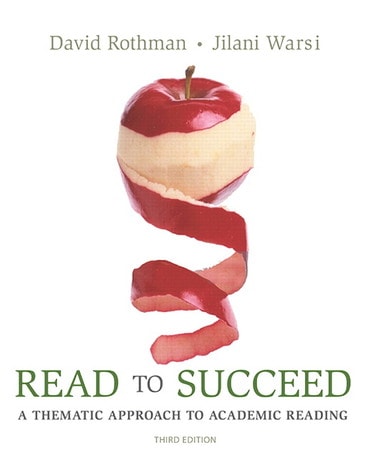Switch content of the page by the Role togglethe content would be changed according to the role
Read to Succeed: A Thematic Approach to Academic Reading, 3rd edition
Published by Pearson (January 21, 2016) © 2017
- David Rothman Queensborough Community College
- Jilani Warsi Queensborough Community College
eTextbook
C$54.99
Need help? Get in touch

